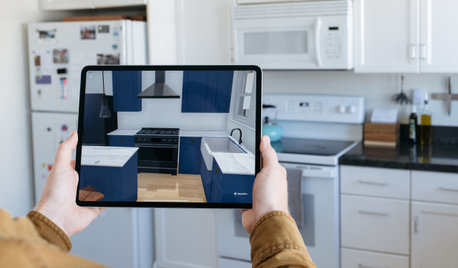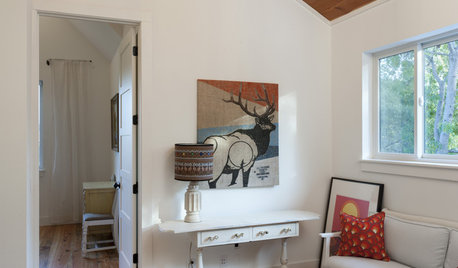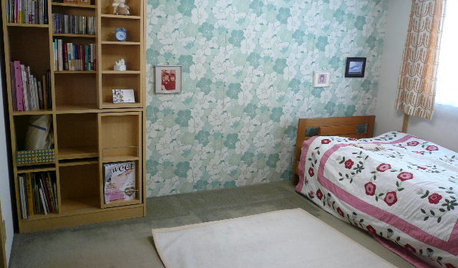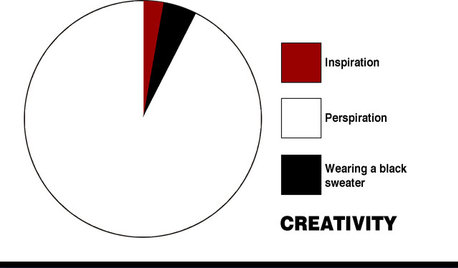Life Expectancy Charts
lucillle
last year
Related Stories

STORAGESmoke and Mirrors: Designing for Life’s Little Messes
Now you see it, now you don’t. These 6 tricks will help make clutter disappear
Full Story
MOST POPULAR11 Things to Expect With Your Remodel
Prepare yourself. Knowing what lies ahead during renovations can save your nerves and smooth the process
Full Story
HOUZZ PRODUCT NEWSBest Practices for Houzz Pro’s Life-Sized Walkthroughs Feature
Want to wow clients with our new augmented reality tool? Follow these tips for a top-notch design presentation
Full Story0

MOST POPULARThree Magic Words for a Clean Home and a Better Life
Not a natural tidying and organizing whiz? Take hope in one short phrase that can change your life forever
Full Story
MOST POPULARTrend Watch: 13 Kitchen Looks Expected to Be Big in 2015
3 designers share their thoughts on what looks, finishes and design elements will be on trend in the year ahead
Full Story
BOOKSCan Tidying Up Result in Life-Changing Magic?
Organizing phenom Marie Kondo promises big results — if you embrace enormous changes and tough choices
Full Story
HOUZZ TV FAVORITESHouzz TV: Life, Love and Purpose Down on the Farm
A Missouri native proves that you can go home again — and discover something entirely unexpected
Full Story
COFFEE WITH AN ARCHITECTDesign Explained in Pie Charts
If you've ever wondered about the creative process of architects and designers, check out these simple charts
Full Story
DECORATING GUIDESInterior Design Trends Expected to Take Hold in 2018
Get the lowdown on the colors, materials and other design decisions gaining steam now
Full StoryMore Discussions









pricklypearcactus
Zalco/bring back Sophie!
Related Professionals
Oshkosh Furniture & Accessories · Queens Furniture & Accessories · Ventura Furniture & Accessories · Wanaque Interior Designers & Decorators · Fayetteville Architects & Building Designers · Winchester Architects & Building Designers · Centralia Home Builders · Katy Home Builders · Montgomery County Home Builders · Pine Bluff Home Builders · Sunrise Home Builders · West Whittier-Los Nietos Home Builders · Lomita Home Builders · Danville Professional Organizers · San Diego Professional Organizerspricklypearcactus
Zalco/bring back Sophie!
roarah
Zalco/bring back Sophie!
Suzieque
patriciae_gw
Lars
Feathers11
Jupidupi
Feathers11
Re Tired
Kathsgrdn
Zalco/bring back Sophie!
pricklypearcactus
Zalco/bring back Sophie!
Elmer J Fudd
Annie Deighnaugh
Sueb20
chisue
1929Spanish-GW
chinacatpeekin
Zalco/bring back Sophie!
jakabedy
chinacatpeekin
Annie Deighnaugh
Toronto Veterinarian
gsciencechick
Lars
teeda
lucillleOriginal Author
Annie Deighnaugh
mtnrdredux_gw
Elmer J Fudd
Toronto Veterinarian
teeda
Annie Deighnaugh
Toronto Veterinarian
marilyn_c
Elmer J Fudd
Elizabeth
Kathsgrdn
Toronto Veterinarian
Zalco/bring back Sophie!
Toronto Veterinarian
lucillleOriginal Author
Elmer J Fudd
lucillleOriginal Author
Elmer J Fudd